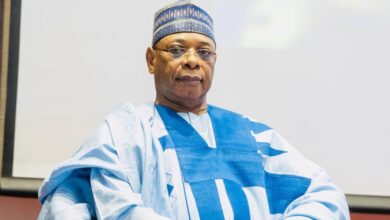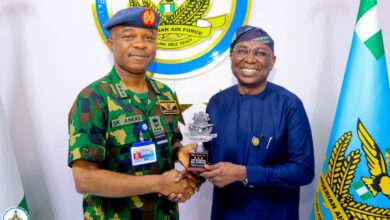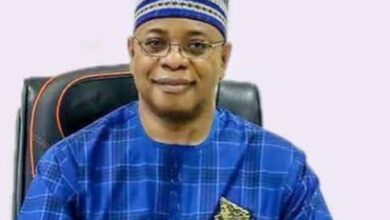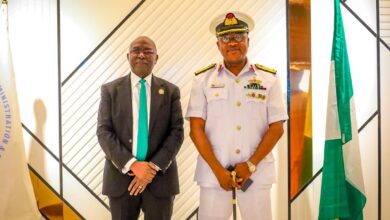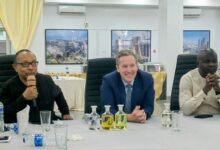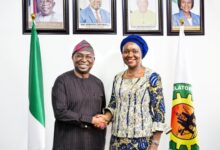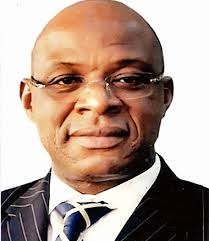
The former Director-General of the Nigerian Maritime Administration and Safety Agency (NIMASA), Barr. Temisan Omatseye, has called for decisive action on the 10-year National Marine and Blue Economy Policy.
Omatseye expressed concern over the country’s approach to the policy, warning that Nigeria risks missing yet another opportunity to capitalise on its natural endowments if real implementation efforts are not made.
He made these remarks during the inaugural edition of Code Blue, Nigeria’s monthly ocean intelligence brief, organised by the Blue Economy Academy and held via Zoom on Tuesday.
“I must confess that one is beginning to lose interest in the sector, in the sense that one is not getting a lot of motion within our sector,” Omatseye stated.
He lamented that despite Nigeria being richly endowed with resources such as oil and access to the ocean, the nation continues to fall short in leveraging the business opportunities inherent in the marine space.
“God gave us an opportunity when oil was discovered, and He also gave us the ocean. Unfortunately, we have not been able to take advantage of these blessings through the business prospects that the marine environment presents.”
Omatseye pointed to what he called a “second opportunity” brought about by recent developments in petroleum exports, particularly with the emergence of private refineries such as the Dangote Refinery.
He warned, however, that although Nigeria is now poised to become a net exporter of petroleum products, fertilisers, dry cargo, and Liquefied Natural Gas (LNG), local stakeholders are not well-positioned to benefit from this shift.
“It is highly unfortunate that Dangote has already exported over a million tonnes of petroleum products and we must ask ourselves; on what vessel?” he questioned.
Reflecting on his vast experience as a maritime lawyer, shipowner, and former NIMASA DG, Omatseye criticised the often hostile relationship between maritime administrators and shipowners. “The problem, in my view, is that administrators tend to see shipowners as oppositions rather than partners.”
However, he commended the aviation sector for its more inclusive and collaborative approach under the leadership of Minister Festus Keyamo, contrasting it with the marine sector where shipowners often feel alienated.
“You don’t get that in the marine sector because the maritime administrators and the Blue Economy see shipowners as enemies, like they are in a tug of war,” he added.
Omatseye emphasised the need for a clear and actionable implementation strategy to accompany the new 10-year policy, including measurable Key Performance Indicators (KPIs). “Each policy should be backed by a strategy detailing how its goal will be achieved. Once a policy is approved, there must be a roadmap, and from that roadmap, KPIs must be developed,” he stressed.
The former DG noted that Nigeria has a history of producing well-crafted policy documents but they ultimately gather dust due to a lack of implementation frameworks.
“Nigeria has some of the best policies on paper, but they often fail due to the absence of implementation strategies and KPIs,” he said, referencing the underutilisation of seafarers trained under the Nigerian Seafarers Development Programme (NSDP), an initiative he helped establish.
Despite significant investments in training, Omatseye stated that Nigeria still struggles to issue Certificates of Competency, thereby limiting the employability of its trained manpower.
He also called on major players like Dangote to be more transparent and inclusive in their planning, stating: “Dangote that built a refinery has a 15-year plan, he is not going to close in five years. He should call shipowners and say, this is my plan and these are the types of vessels I will need, so that shipowners can take that as a part of their own business plan.”
Omatseye further questioned the national strategy surrounding emerging infrastructure like the new Dangote port in Ogun State and the state’s ambitions to build the largest fertiliser plant.
“We are not going to eat those things. They must be exported and how are they going to be exported? Only by ships,” he affirmed, highlighting the importance of maritime logistics in national development.


